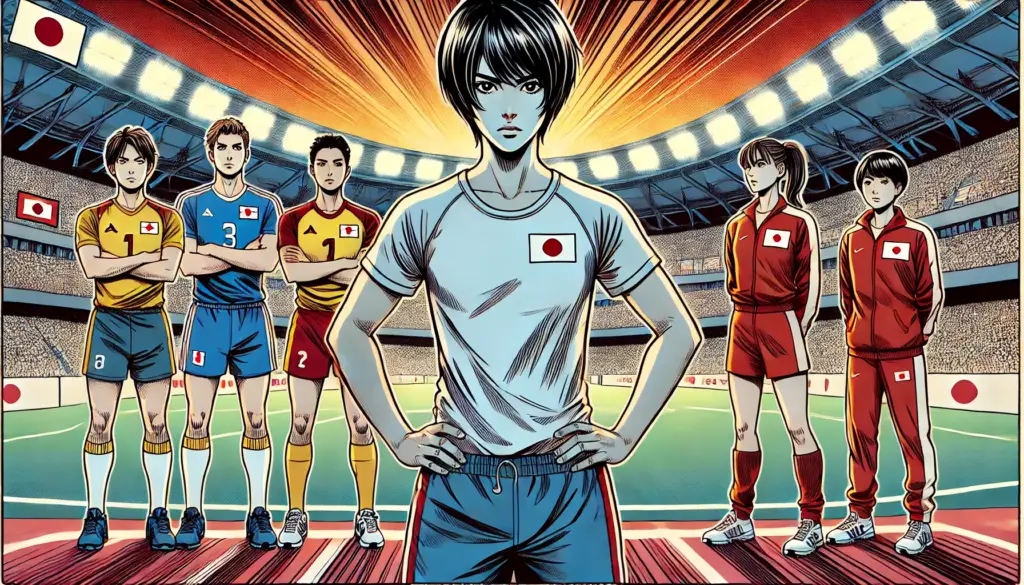
🏳️⚧️ Trans Athletes in Japanese Sports: A Quiet Shift Underway?
In recent years, the global conversation around transgender athletes has become more visible and polarizing. While the U.S. and Europe have seen heated debates, Japan has approached the issue with quieter deliberation. However, behind the scenes, major sports federations in Japan have begun updating their guidelines to define who can compete in which category—and under what conditions. Let’s take a closer look at how Japan is treating gender diversity in sports, and how different federations are adapting their rules in response to evolving science, fairness concerns, and human rights.
🎌 A Culture of Caution and Consensus
Japan’s approach to sports governance tends to prioritize consensus and harmony. As a result, there has been little public outcry or media frenzy around transgender participation in sports. But that doesn’t mean nothing is happening. Behind closed doors, several sports organizations have quietly revised their policies to reflect international trends—especially following World Athletics and World Aquatics’ stricter stances on trans participation in the female category.
🗂️ Key Japanese Federations and Their Current Stances
🏃♀️ Japan Association of Athletics Federations (JAAF)
In 2023, JAAF began aligning more closely with World Athletics’ guidelines, which restrict transgender women from competing in elite female events if they have undergone male puberty. While JAAF has not made its stance highly publicized, internal documents now recommend similar testosterone-based thresholds and eligibility timelines.
🏊 Japan Swimming Federation (JSF)
Following the decision by World Aquatics to limit trans women’s eligibility, JSF updated its own guidelines in late 2024. Athletes must now provide detailed medical evidence, maintain testosterone levels below 2.5 nmol/L for at least 12 months, and may be required to undergo panel review.
🥋 All Japan Judo Federation
Interestingly, judo has taken a more flexible approach. Because judo is divided by weight class and less reliant on sheer speed or endurance, the federation allows trans athletes on a case-by-case basis, prioritizing fairness and safety. As of 2025, they are revising their internal handbook to include clearer definitions of gender identity and eligibility.
🏐 Japan Volleyball Association
So far, no official ban or eligibility restriction exists in volleyball, but a working group was established in mid-2024 to study potential changes. The group is reportedly consulting with medical experts, gender researchers, and trans athletes before making a decision by early 2026.
🏋️♀️ Japan Weightlifting Association
Perhaps the most progressive among Japan’s sports bodies, the association accepts gender identity-based participation at the amateur level, though elite-level participation still requires testosterone testing and medical documentation. They’ve also launched an educational campaign in 2025 to promote inclusivity at the gym and training levels.
📘 Changing Guidelines: What’s Driving the Shift?
- Global Precedent
As international federations revise rules, Japan follows suit to remain eligible for Olympic and global competitions. - Legal Pressure
With Japan’s 2023 court rulings recognizing gender dysphoria as a medical condition requiring accommodation, federations have come under pressure to avoid discrimination lawsuits. - Science and Fairness
Federations now lean more heavily on data about testosterone’s impact on muscle mass and recovery to inform guidelines, especially in sports involving strength and endurance. - Voices from the Field
Trans athletes in Japan have started speaking out—albeit quietly—about their struggles with unclear policies. Some local sports clubs have taken the lead in offering gender-neutral changing areas and policies, setting grassroots examples for national bodies.
👥 The Debate: Between Fairness and Inclusion
Japan’s sports world is walking a delicate line. On one hand, there’s a cultural emphasis on “wa” (harmony) that promotes inclusion. On the other, many fear backlash from international audiences or domestic conservatives if policies are seen as too lenient or unclear. This has created a situation where progress happens, but very quietly.
🔮 What’s Next for Trans Athletes in Japan?
Looking ahead, most Japanese federations are expected to finalize their transgender participation policies by the 2026 fiscal year. Tokyo 2025, the national youth sports championship, is already requiring gender declaration forms with optional privacy protections—a possible prototype for future nationwide frameworks.
Educational seminars, joint medical review panels, and pilot programs for non-binary inclusion are also reportedly under consideration. Japan may not be leading the global charge, but it’s certainly adjusting its playbook.
📝 Conclusion
While not always visible to the public, Japanese sports organizations are actively reshaping their stance on transgender athletes. Balancing global expectations, fairness, and cultural sensitivity, Japan is crafting its own path forward—one quietly built on review, revision, and reflection. Whether this model becomes a future standard or a cautionary tale remains to be seen, but one thing is clear: the conversation has already begun.



















































